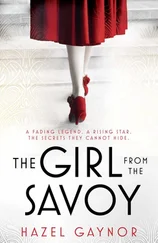To this day Larry has never asked me the nitty-gritty of what happened in the room at Jack Nicholson’s house. I appreciate that, but it wasn’t just out of concern for me. As my attorney, it was more important for Larry to know the details of what happened before and after the rape: the meeting with Mom and Bob, what happened that made Terri, who was supposed to accompany me, not come along. Chronology mattered. Timing mattered. When articles of clothing were removed, when they were put back on (those damn panties again!), who said what, and when. Mostly this information was not essential for my representation; Larry said they were questions that the DA was asking, and he had to have the information. In my mind, I knew that Larry was on my side—after all, my father had hired him—and was just doing his job, but with all his questions, he seemed more like the enemy. I know it wasn’t comfortable for him, either, and given the chance, he’d rather have gotten information from Mom, Bob, or even from Kim, who hated talking about it almost as much as I did.
I could see I was trying his patience, but he tried very hard to form a bond with someone who wished he would just vanish in a puff of smoke. He asked about my day-to-day teenage life, dreams, aspirations in that way that adults do to kids, and kids see right through. (He did get points by scoring VIP seats to the Led Zeppelin concert “The Song Remains the Same.” He might have been trying too hard, but I knew he was trying.)
Over the years Larry became one of my most trusted allies and true friends, but back then he just seemed part of the hell I was being forced to go through. He was sympathetic, though, and it didn’t take long to convince him that my rape was no fantasy. Larry couldn’t understand why the defense was asking for the psychiatric evaluation; he said it would only inflame emotions on all sides.
This is not to say the tactic of blaming the victim in a rape case was anything new. Quite the contrary: Even with forensic evidence of sexual activity, the defense tries to manipulate the issue to a he said/she said case, and often attacks the credibility and morality of the victim. Fortunately, two years earlier, California state senator Alan Robbins introduced and passed the Robbins Rape Evidence Law, which prohibited rape defendants from introducing as evidence at trial the sexual histories of their victims. The statute became a national model and was adopted in many states. [1] In 1981 Robbins stood trial, but was not convicted, for having sex with two sixteen-year-old girls he met in the state capitol in 1978 and 1979. In 1991 he was chucked from the California Senate and served a twenty-month jail sentence for taking bribes from lobbyists. Which proves that even a crooked pol can have a shining legacy.
Larry thought Polanski’s lawyer, Douglas Dalton, was engaged in legal grandstanding. He was trying the case in the media, starting with the suggestion that of course I must be mentally unbalanced. From the legal point of view, Dalton’s strategy was ill-advised because it was a stretch to think the court would order a psychiatric evaluation of me, so he would be starting off with losing his first motion. I know that attorneys fight these battles with each other but still remain respectful of their adversaries. I could see that Larry was starting to dislike Dalton. I started to like Larry a little more.
Larry prepared a draft opposing Dalton’s motion, and discussed it with him, hoping to find a compromise of some sort. The basis of his argument was that a witness to a crime was not subject to defense discovery that included a psychiatric examination. They went back and forth without coming to any agreement. Then, before the motion was scheduled to be argued in front of Judge Rittenband, Dalton withdrew it.
We won! Dalton had withdrawn a motion that he had publicly announced he would bring. So… Hooray? Well, the truth is, I was so disengaged from what was going on that I wasn’t even aware of it. All I knew was that I wasn’t going to be dragged to a psychiatrist—a small victory, but a victory nonetheless. I paid no attention to the legal wrangling through this period, and only found out much later through written records, as well as Mom’s and Larry’s memories.
But at any rate, that was it: Larry’s job was done. He dutifully reported the successful withdrawal of the application to my father, who was relieved, grateful, and impressed. Then he said to Larry: “I think this is going to be just the first round, and Samantha and Susan are going to need continuing representation. Would you be interested?” Larry was not by nature a lover of high-profile cases, but he wasn’t averse, either. And at this point, he was invested both as an attorney and a human being. Though perhaps he would have had a moment’s pause if he realized he was stepping into a modern version of Jarndyce v. Jarndyce, the famous case in Dickens’s Bleak House that goes on for generations. This case he’d just agreed to handle would continue, in one form or another, for the next thirty-six years. (And counting.)
The months leading up to graduation from middle school were kind of a fog for me. My mother, normally a relentless photographer, stopped taking pictures altogether. I think she was afraid that somehow photos from that year could become evidence. Or maybe it was a reaction to seeing the snaps Polanski took of me. We became recluses. Normally Mom loved attention. Now she wanted all of us to be invisible.
My name had been published in Europe, [1] The U.S. media generally doesn’t publish the names of rape victims because of the traditional (and, I hope, outdated) concern that the victims suffer humiliation and harm to their “reputations.” Also, one of the reasons that a large number of rapes go unreported is that the victims don’t want public exposure. These concerns aren’t so strong in Europe.
so now the phone rang incessantly. Mom and Bob changed our number, but soon reporters got the new one. There were some days when all it took was the phone ringing to make everyone jump.
A particularly enterprising photographer in a brown station wagon camped outside our house on Peonia Road. I’d peek through the curtains to see the long-range camera lens in the driver’s-side window. The presence of that camera changed our movements. We became furtive figures dashing in and out of our own home.
One day a radio DJ from Chicago called, and Bob, in an unthinking moment, actually said my name. Mom screamed at him.
Kim never suffered the intrusions well. One day, when she picked up the phone and someone asked if we were prostitutes, she couldn’t stop herself from screaming, “You motherfucker!” Perhaps unsurprisingly, stories started seeping out about this unhinged family at the center of the Polanski scandal.
Rona Barrett, the TV gossip columnist, was one of the few people in the media to provide a measure of decency. She called the house a few times and gently asked if she could sit down with Mom and me, promising that she would not come on strong. By this time my mother and Bob were cynical toward just about everyone’s motives, and would hang up on reporters. But this time, Bob picked up the phone, and something in Barrett’s voice practically broke him.
“Please,” Bob said. “Don’t do this. We’re having such a rough time. Please help us protect her.”
“It’s okay, I understand.”
Dozens of reporters had said that, only to call again, or show up at our doorstep. But Barrett was true to her word and never called again.
My family really, really needed to get away. With my mother looking for serenity, we took a mini-vacation in Miami with my mom’s sister Kathy and her boyfriend, Bruce, to attend a “Holi,” a Hindu festival of spring. At the airport I was scolded for having a notebook I’d covered with the brilliant observations of 1970s teenagedom: “Life’s a Bitch and Then You Die,” “Sneer at Death Fear Only Loss of Pride—Aerosmith.” Mom was always worried someone might get a photo of me that made me look bad, and I was angry and tired of being told how to act.
Читать дальше












